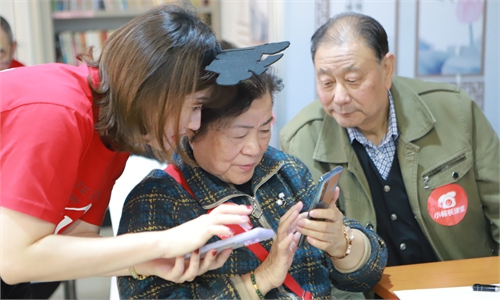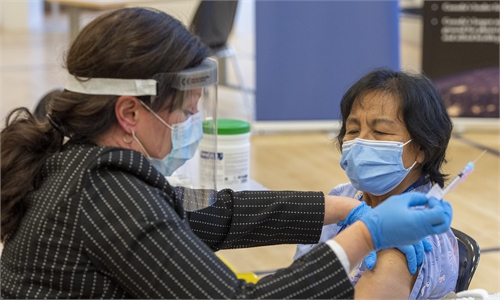Love, tech and online harassment of women in the time of coronavirus
Web of abuse
When Priya's boyfriend posted a nude photo of her online, he told her it would give her a confidence boost by making her an object of desire for other men.
Instead she felt powerless knowing that someone she loved had shared an intimate photo without her consent.
"He said all these people dream of having you but only I get to have you," she told Reuters from Mumbai, not wanting to reveal her real name.
Priya's story is all too common.
There has been a global rise in online harassment of women and girls in the past year, usually by abusive partners or ex-partners who are stuck at home in front of a screen due to coronavirus lockdowns, according to UN Women.

As worldwide restrictions push more people online, digital gender abuse is likely to worsen now that the internet is an absolute necessity, said Azmina Dhrodia, a senior researcher at the World Wide Web Foundation.
Even before COVID-19, more than half of girls and young women had experienced online abuse, according to a global poll in 2020 by the Web Foundation, an organization cofounded by the inventor of the web, Tim Berners-Lee.
Sharing images, videos or private information without consent - known as doxxing - was the most concerning issue, the poll shows.
Girls as young as eight have also been subject to abuse, with one in five young women quitting or reducing their use of social media, according to a survey in October 2020 by girls' rights group Plan International.
"It's a sobering fact because if you think about how much work is being done in terms of digital inclusion and getting people online," said Neema Iyer, head of Uganda-based digital rights group Pollicy.
Digital control
Since the outbreak of COVID-19, all types of violence against women and girls have intensified, with helplines in some places seeing a five-fold rise in calls, UN Women says.
There has also been a surge in spyware, stalkerware and other online monitoring software, said New York-based lawyer Akhila Kolisetty, cofounder of End Cyber Abuse.
"As people are working at home, abusers are coercing people to share passwords, coercing people to share intimate images as part of an abusive relationship, or tracking someone's activity online," Kolisetty said.
It is an issue that led Indian artist Indu Harikumar to document online domestic violence, featuring Priya's story as part of her art project.
"Someone actually told me that if people don't share passwords in relationships then there's something shady happening," said Harikumar, who illustrated stories of digital abuse submitted anonymously by her Instagram followers.
Legal lag
Campaigners say online sexual harassment is difficult to regulate and is often only partially covered by legislation, which varies in each country, with researchers, lawyers and advocates worldwide working to plug legal gaps.
Human rights lawyer Kolisetty said India, Canada, England, Pakistan and Germany were among a small number of countries that have outlawed image-based sexual abuse, where private pictures are shared without consent. But with technology advancing so rapidly, the laws are lagging, according to legal experts and advocates.
"In countries that don't have a specific law, it can be very difficult for survivors to seek justice because police may not take their complaints seriously," Kolisetty said.
Pollicy's Iyer said she had spoken to women who were laughed at for reporting online abuse to the police. Even when there are laws, conservative attitudes could stop women from speaking up.
Tech tools
Social media platforms Facebook, which owns WhatsApp and Instagram, Twitter and Tik Tok, as well as video-conferencing app Zoom, told Reuters they were committed to stamping out web harassment.
Zoom had multiple reports of "zoombombing," where strangers barge into private calls having gained access to a meeting invite.
When Zoombombers started infiltrating lectures and meetings to harass attendees with sexual content, sexist or racial slurs, Zoom said they tightened their security tools and worked closely with law enforcement.
Twitter said they too tweaked their safety features by allowing people to control who can reply to their conversations, and are proactively identifying abusive tweets and accounts instead of relying on reporting mechanisms.
Facebook said it automatically hides offensive or bullying content, can prevent "revenge porn" from being circulated, and users can easily block or ignore unsolicited messages.
Yet nearly all respondents in a September study by End Violence Against Women and anti-online abuse charity Glitch said their experiences of online abuse during COVID-19 were not properly addressed by the tech giants.
Sense of urgency
As the COVID-19 crisis rolls into another year, women's rights advocates are hopeful that tech companies, governments and authorities will prioritize tackling digital abuse.
"The pandemic has made people aware of the extent of online abuse and I think that awareness at least will enable a shift in laws and culture over the long term," said Dhrodia.
Instead she felt powerless knowing that someone she loved had shared an intimate photo without her consent.
"He said all these people dream of having you but only I get to have you," she told Reuters from Mumbai, not wanting to reveal her real name.
Priya's story is all too common.
There has been a global rise in online harassment of women and girls in the past year, usually by abusive partners or ex-partners who are stuck at home in front of a screen due to coronavirus lockdowns, according to UN Women.

Actress and internet personality Fuka Haruna, who has suffered from internet bullying and had to leave schools and move houses as her personal data were disclosed on the internet, is seen during an online interview by the Yomiuri Shimbun in Chiyoda Ward, Tokyo, on June 25, 2020. Haruna decided to file a suit against slanderers. Photo: AFP
Hostile spaceAs worldwide restrictions push more people online, digital gender abuse is likely to worsen now that the internet is an absolute necessity, said Azmina Dhrodia, a senior researcher at the World Wide Web Foundation.
Even before COVID-19, more than half of girls and young women had experienced online abuse, according to a global poll in 2020 by the Web Foundation, an organization cofounded by the inventor of the web, Tim Berners-Lee.
Sharing images, videos or private information without consent - known as doxxing - was the most concerning issue, the poll shows.
Girls as young as eight have also been subject to abuse, with one in five young women quitting or reducing their use of social media, according to a survey in October 2020 by girls' rights group Plan International.
"It's a sobering fact because if you think about how much work is being done in terms of digital inclusion and getting people online," said Neema Iyer, head of Uganda-based digital rights group Pollicy.
Digital control
Since the outbreak of COVID-19, all types of violence against women and girls have intensified, with helplines in some places seeing a five-fold rise in calls, UN Women says.
There has also been a surge in spyware, stalkerware and other online monitoring software, said New York-based lawyer Akhila Kolisetty, cofounder of End Cyber Abuse.
"As people are working at home, abusers are coercing people to share passwords, coercing people to share intimate images as part of an abusive relationship, or tracking someone's activity online," Kolisetty said.
It is an issue that led Indian artist Indu Harikumar to document online domestic violence, featuring Priya's story as part of her art project.
"Someone actually told me that if people don't share passwords in relationships then there's something shady happening," said Harikumar, who illustrated stories of digital abuse submitted anonymously by her Instagram followers.
Legal lag
Campaigners say online sexual harassment is difficult to regulate and is often only partially covered by legislation, which varies in each country, with researchers, lawyers and advocates worldwide working to plug legal gaps.
Human rights lawyer Kolisetty said India, Canada, England, Pakistan and Germany were among a small number of countries that have outlawed image-based sexual abuse, where private pictures are shared without consent. But with technology advancing so rapidly, the laws are lagging, according to legal experts and advocates.
"In countries that don't have a specific law, it can be very difficult for survivors to seek justice because police may not take their complaints seriously," Kolisetty said.
Pollicy's Iyer said she had spoken to women who were laughed at for reporting online abuse to the police. Even when there are laws, conservative attitudes could stop women from speaking up.
Tech tools
Social media platforms Facebook, which owns WhatsApp and Instagram, Twitter and Tik Tok, as well as video-conferencing app Zoom, told Reuters they were committed to stamping out web harassment.
Zoom had multiple reports of "zoombombing," where strangers barge into private calls having gained access to a meeting invite.
When Zoombombers started infiltrating lectures and meetings to harass attendees with sexual content, sexist or racial slurs, Zoom said they tightened their security tools and worked closely with law enforcement.
Twitter said they too tweaked their safety features by allowing people to control who can reply to their conversations, and are proactively identifying abusive tweets and accounts instead of relying on reporting mechanisms.
Facebook said it automatically hides offensive or bullying content, can prevent "revenge porn" from being circulated, and users can easily block or ignore unsolicited messages.
Yet nearly all respondents in a September study by End Violence Against Women and anti-online abuse charity Glitch said their experiences of online abuse during COVID-19 were not properly addressed by the tech giants.
Sense of urgency
As the COVID-19 crisis rolls into another year, women's rights advocates are hopeful that tech companies, governments and authorities will prioritize tackling digital abuse.
"The pandemic has made people aware of the extent of online abuse and I think that awareness at least will enable a shift in laws and culture over the long term," said Dhrodia.



